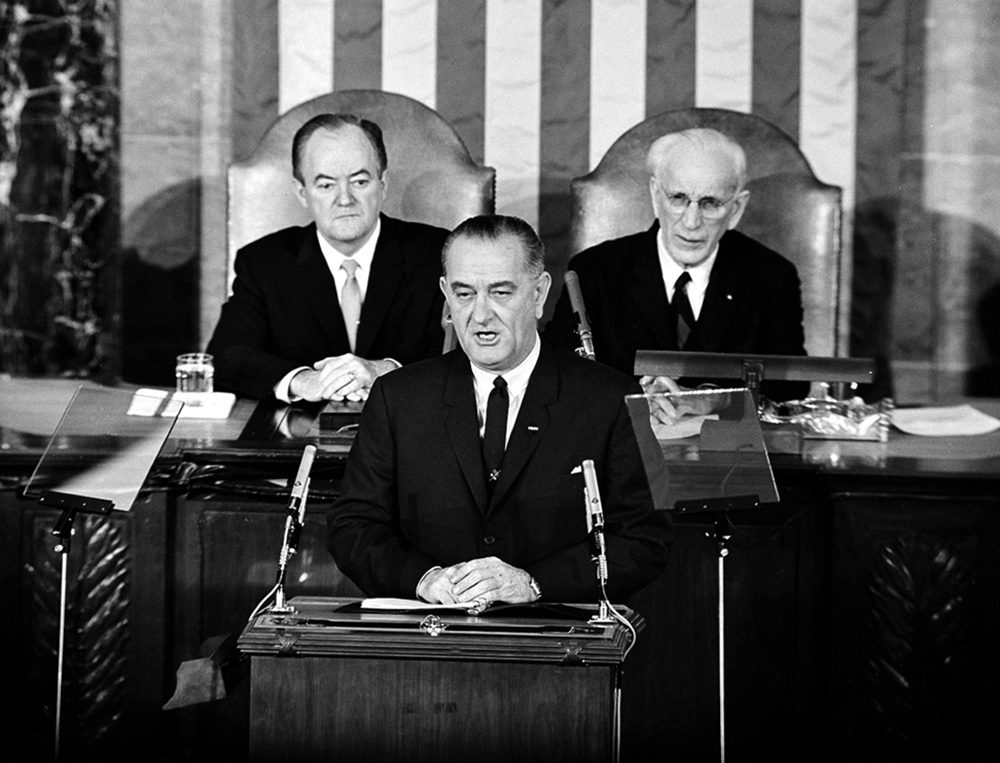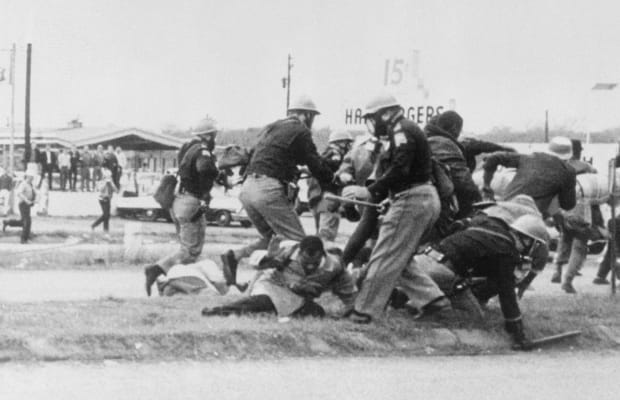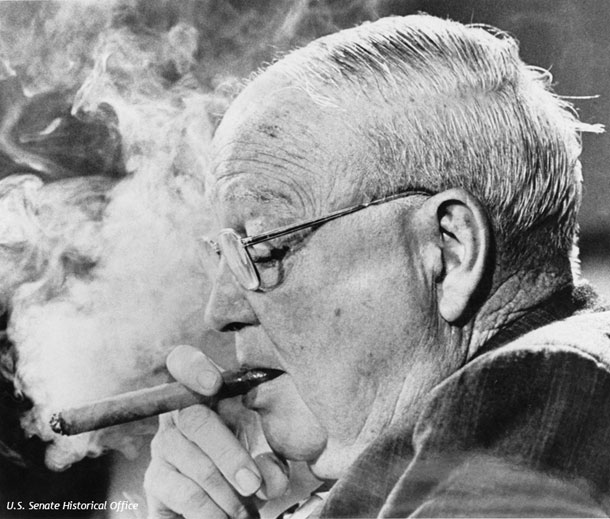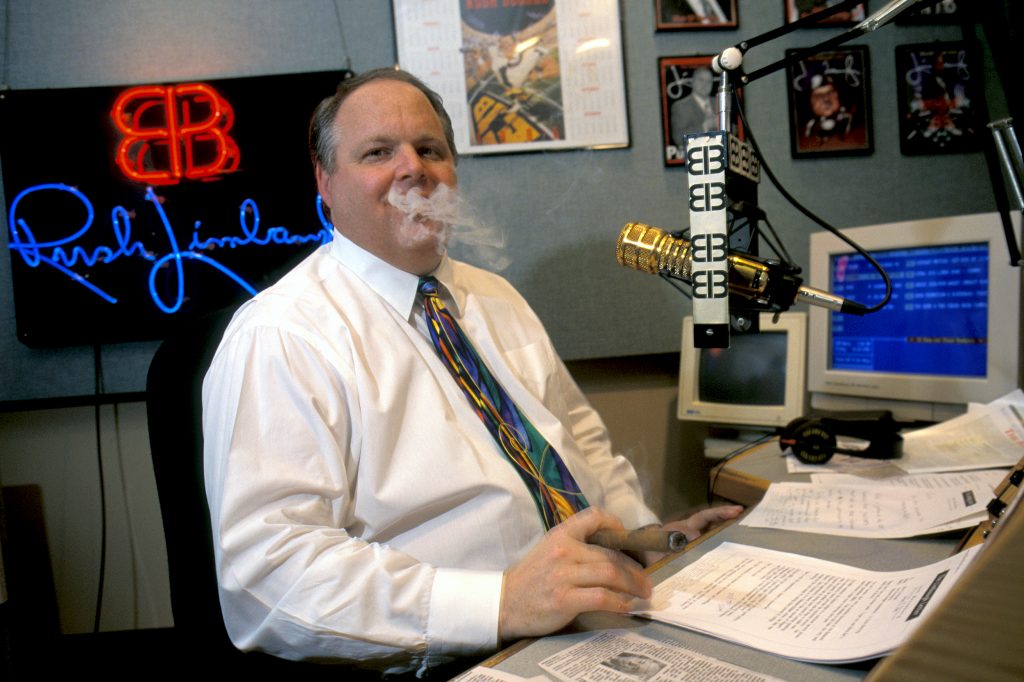On a Monday night 56 years ago next month, Lyndon Johnson ambled his way on to the floor of the U.S. House of Representatives to play the role, as one of his biographers has written, of “one shrewd heartland politician finishing what another had started.”
“The galleries were jammed with whites and blacks, some in street clothes fresh from demonstrations and others in business attire,” historian Randall Woods wrote of the scene. The president’s wife and a daughter were in the crowd, so was FBI director J. Edgar Hoover. But the entire Mississippi delegation was boycotting the speech. Those unreconstructed segregationists Democrats, still embracing the grievance of a lost cause, knew what was coming.

“At times history and fate meet at a single time in a single place to shape a turning point in man’s unending search for freedom,” Johnson said in his low, familiar Texas drawl. “So it was at Lexington and Concord. So it was a century ago at Appomattox. So it was last week in Selma, Alabama.”
The week before – forever etched in American memory as “Bloody Sunday”- voting rights advocates had been routed and brutalized in Selma, Alabama. The next day’s coverage on the front page of the New York Times ran under the headline: “Alabama police use gas and clubs to rout Negros.” A four-column photo showed Alabama state troopers beating a young marcher – future Georgia congressman John Lewis – leaving his skull fractured and blood on his white shirt and tan raincoat.
The ugly, un-American state terrorism at the Edmund Pettus Bridge – the bridge still carries the name of a Confederate general and Alabama leader of the Klan – was a hinge moment in political history, and LBJ seized the moment. He would push a Voting Rights Act (VRA) to finally make real the promise of that earlier heartland politician, Abraham Lincoln, martyred in his pledge to guarantee equal rights for all Americans.

“The real hero of this struggle is the American Negro,” Johnson told the country and the Congress in 1965. “His actions and protests, his courage to risk safety and even to risk his life, have awakened the conscience of this Nation. His demonstrations have been designed to call attention to injustice, designed to provoke change, designed to stir reform.
“He has called upon us to make good the promise of America. And who among us can say that we would have made the same progress were it not for his persistent bravery, and his faith in American democracy.”
Writing recently in The Atlantic, journalist Vann R. Newkirk II correctly asserted that passage of the VRA “finally delivered on the stated ideals of the country,” but now in state after state across the country that ideal “hangs by a thread.”
From Georgia to Arizona, Montana to Idaho, Republican dominated state legislatures are attempting to do what southern segregationist Democrats did in earlier days: make it more difficult, if not impossible for some Americans to vote. It is no accident that this wave of new era vote suppression and denial comes on the heels of a record vote in a presidential election where a Democrat won the White House over a man who over and over perpetuated a big lie about elections being stolen, dead people voting and ballots being manufactured.
By repeating time and again that some Americans are “skeptical about the integrity of our elections” Republicans, including the former president, have manufactured a malicious assault on American democracy. It quite simply amounts to the biggest lie ever told about American politics.
Minnesota’s secretary of state Steve Simon described recently what is happening: “Some folks bring these proposals forward and say, ‘Well, we just need to address confidence in our election systems,’ when it’s some of those very same people, or at least their allies and enablers, [who] have denigrated our election system by either telling lies or at least leveraging or relying on other people’s lies to justify some of these policies.”
This tactic is the voting rights equivalent of the fellow who murdered his parents and then insisting on leniency because he’s an orphan.
The Republican floor leader of the Idaho House of Representatives, a guy so cynical that he blasted federal efforts to provide financial assistance to businesses whacked by the impacts of the pandemic and then ended up taking the aid himself, is a champion of the “many people are saying” logic of voter suppression.
“There are a lot of people in this country looking at what happened in other states — some of those states had ballot harvesting — that feel like they were victimized by the outcome of this last national election,” Mike Moyle said recently as he pushed a bill to restrict your ability to pick up and drop off your elderly grandparent’s absentee ballot.
In the face of precisely no evidence of abuse, Moyle said the quiet part out loud while pushing an earlier even more restrictive bill. “You know what? Voting shouldn’t be easy,” Moyle said. Other legislators are seeking to ruin the ability of voters to take action using the time-test initiative method.
The gentleman from Idaho won’t appreciate the reference, or likely understand it, but he’s a latter-day version of Mississippi segregationist James Eastland who resisted the Voting Rights Act by claiming his state had a right to disqualify certain voters and, after all, some communists must certainly be mixed up in this push to get more people to vote.

In the 56 years since Johnson framed the basic right to vote as a “battle for equality” rooted in “a deep-seated belief in the democratic process,” the two political parties have traded places on voting rights. Democrats, believing that making it easier to vote and easier for more people to vote, have embraced policies like motor voter registration, mail voting and same day registration. Republicans, looking fearfully at what high turnout portends for their long-term electoral success, now broadly reject inclusive policies and endorse conspiracy theories about stolen elections. In 2013, a conservative majority on the Supreme Court gutted a key enforcement provision of the landmark 1965 law, and the GOP resists efforts to address stronger enforcement.
In politics the truth is often hiding in plain sight. Georgia voters, including record turnout among African Americans, elected two Democratic senators in January, one, the state’s first black U.S. senator, the other, the first Jewish senator in the state’s history. More people voting is good for democracy. Attempting to keep more people from voting is good for Republicans.
—–0—–
Additional Reading:
Some items you may find of interest…
Rush Limbaugh Was Trapped in the ’80s: It’s his fault that our politics were, too.

Michael J. Socolow has an insightful piece on the recently departed talk radio personality and his impact on American politics.
“Limbaugh’s influence on U.S. politics from the Reagan era to the Trump presidency was enormous. To discuss him primarily as a media figure (many credit him with saving the AM radio band when FM radio listening became dominant) is to overlook his more general impact on American political culture. He did not innovate radio programming, nor did he leave an easily replicable formula for a successful show. Like Arthur Godfrey and Walter Winchell before him, there was only one Rush Limbaugh. And like those two earlier giants in U.S. radio, Limbaugh’s style and massive audiences will no doubt disappear along with him. For better or for worse, there won’t be another one like him.”
Read the entire article:
The Filibuster That Saved the Electoral College
A central character in my new book on four 1980 U.S. Senate races is Indiana Senator Birch Bayh. He was an enormously important political figure and it’s almost lost to history that he came remarkably close in 1968 to doing away with the Electoral College.
“Mr. Bayh had been pushing for a popular vote since 1966, shortly after the passage of the Civil Rights and Voting Rights Acts had ended the Jim Crow era and pulled America closer than it had ever been to a truly representative democracy. Electing the president directly was the next logical step in that progression.”
Read how a Senate filibuster killed the effort. Bayh called it the biggest disappointment of his political life.
One night in Cancun: Ted Cruz’s disastrous decision to go on vacation during Texas storm crisis

In this delightfully snarky take down of the oleaginous Texas senator the Washington Post’s Ashely Parker strikes a blow for freedom.
“Usually, it takes at least one full day in Cancún to do something embarrassing you’ll never live down.
“But for Ted Cruz (R-Tex.), it took just 10 hours — from when his United plane touched down at Cancún International Airport at 7:52 p.m. Wednesday to when he booked a return flight back to Houston around 6 a.m. Thursday — for the state’s junior senator to apparently realize he had made a horrible mistake.”
The most hated man in the Senate expands his reach.
Thanks for following along.
And please check out my author website for regular updates about events and talks related to my new book Tuesday Night Massacre: Four Senate Elections and the Radicalization of the Republican Party.
